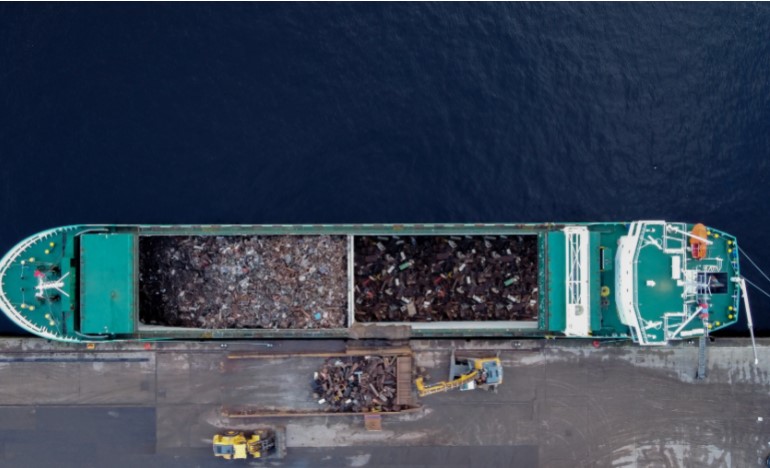The BMRA said it has “serious concerns with its accuracy”, stating it had an “apparent lack of engagement with the industry”.
Since its publication in October, the report has been heavily criticised as ignoring the views of the metal recycling sector and making destination errors.
In November, the BMRA criticised the report (see letsrecycle.com story), but after a meeting between the two was rescheduled, it has now called for it to be completely withdrawn.
In a statement today (seen in full below), a spokesperson for Zero Waste Scotland said the report is intended for use as “a discursive document to inform future thinking in this area”.
It said while based on UK-data, it still provides a “valid carbon assessment of different management options for Scotland’s scrap steel”.
Exports
The data referenced in the report refers to the UK scrap market as a whole and does not differentiate Scotland’s scrap arisings
– BMRA
The report claims that Scotland exports ferrous scrap to countries such as Turkey, although one of Scotland’s large metal recycling businesses says scrap goes primarily to continental Europe.
However, the BMRA has said that it was not consulted for information for the report.
The BMRA said: “The data referenced in the report refers to the UK scrap market as a whole and does not differentiate Scotland’s scrap arisings and destinations.
“Moreover, the destination of processed Scottish steel scrap is mis-reported as going to blast furnace steel mills in Turkey. In reality, the vast majority is shipped to the short-sea market steel mills in continental Europe, predominately Spain. Most of these steel mills operate with electric arc furnaces (EAFs), most with renewable energy grids.
“These data errors effectively mean that the report’s cited carbon savings and benefits of locating a steel mill in Scotland are meaningless as they are compared to steel mills in Turkey, not EAFs based in the European Union.”
EAF
The ZWS report was the second of its type from the Scottish Government-backed body to endorse the idea of building a new Electric Arc Furnace (EAF) steel mill in Scotland which would use ferrous scrap as its feedstock.
However, the BMRA said that the report’s claim that locating an EAF in Scotland would save transport and energy emissions over current processes is “again, incorrect”.
The association continues: “Building an EAF in Scotland would result in some 70,000 additional HGV journeys every year to move the stated 820,000 tonnes of processed ferrous scrap in the report. It’s hard to see how this would contribute to achieving Scotland’s net zero aspirations.
“Furthermore, the authors do not set out the type of steel mill to be built, which is a critical oversight as no single steel mill could meet Scotland’s needs, as different mills produce different types of steel product.”
The BMRA added that the SPG invited ZWS to a specially arranged meeting to discuss the report, which was rescheduled.
The Association concluded that it hopes to reschedule the meeting early in the new year.
Models
A representative from Zero Waste Scotland commented: “We are sorry to hear concerns raised by the Scottish Policy Group of the BMRA relating to our report.
“As made clear in our report, our analysis is based on UK-wide data, which is the best and only data set currently available relating to scrap steel management in Scotland. This data was scaled to allow for different scenarios to be modelled and compared within a Scottish context. This method is standard practice in the undertaking of research of this type.
“Through the exploration of different scenarios, this report is intended as a discursive document to inform future thinking in this area. Whilst we accept that, due to the limitations of the data set available, some of the scenarios we explore might differ from current practices implemented by some actors in the Scottish sector, our report still provides a valid carbon assessment of different management options for Scotland’s scrap steel.
“The findings of this carbon assessment show the significant carbon benefits of bringing Electric Arc Furnace technology to Scotland, however the feasibility of this from other perspectives, including assessing the economic case, still need to be explored.
“This will be the focus of our future planned work in this area and, as part of this work, we will engage with Scottish industry to gain a more detailed understanding of Scottish scrap steel arisings and their export destinations”.












Subscribe for free